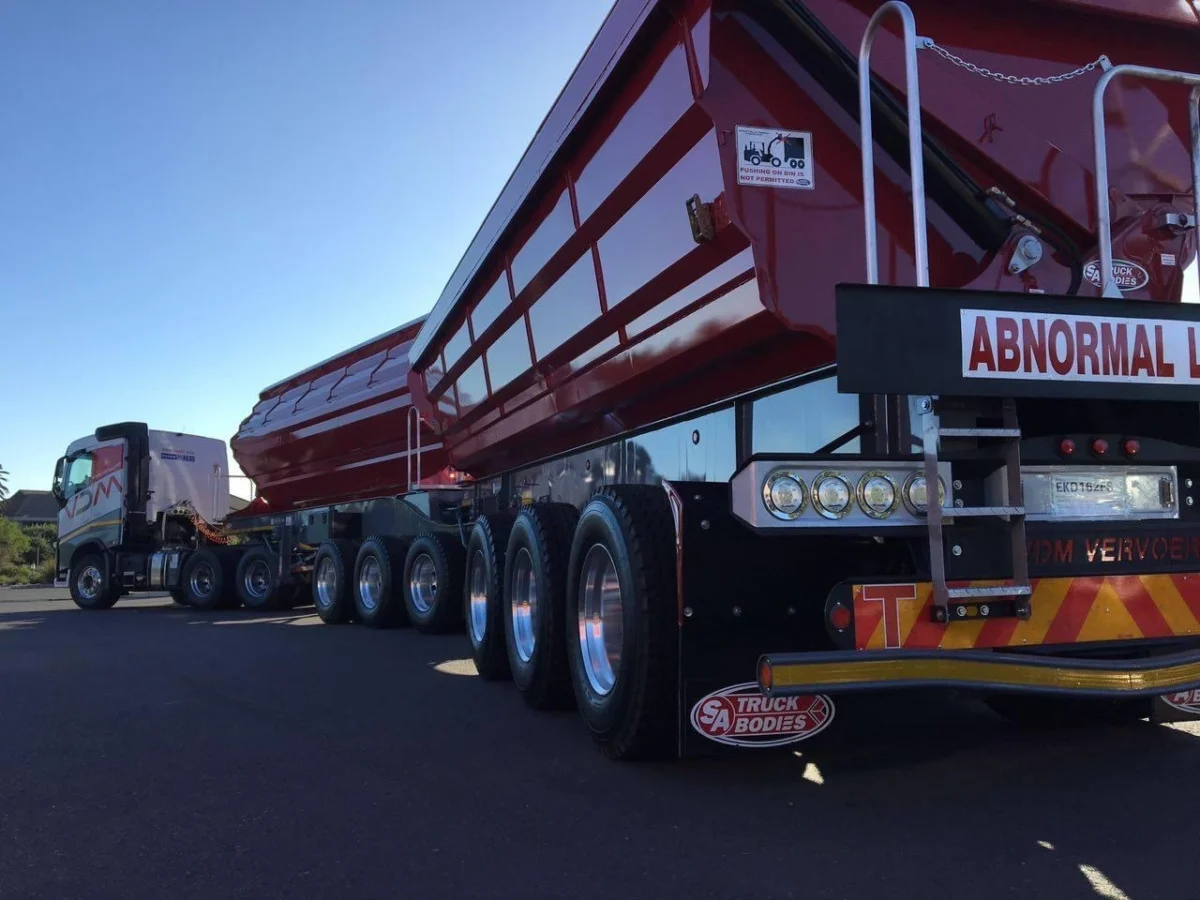
In South Africa, efficient transportation plays a vital role in driving economic growth and development.
As the country’s economy continues to expand, the demand for reliable and cost-effective logistics solutions becomes increasingly significant.
The Performance-Based Standards (PBS) system for trucks has emerged as a revolutionary approach to enhance road freight transport efficiency and safety.
We will explore the PBS system, its benefits, and its impact on South Africa’s trucking industry.
Understanding the PBS System
The PBS system is a performance-based approach that focuses on evaluating and regulating heavy vehicle combinations based on their operational performance rather than traditional prescriptive standards.
Instead of relying solely on weight restrictions, the PBS system considers factors such as stability, braking performance, and maneuverability.
By doing so, it enables the design and operation of vehicles that are optimized for specific tasks, thereby improving overall productivity and safety.
The PBS approach also allows a more optimum match between the PBS vehicle and the road infrastructure (roads and bridges) which it uses.
Heavy vehicles operated under a PBS framework are typically limited to travel on a subset of the network to ensure protection of the road infrastructure and acceptable safety levels.
Read | The Robson Drive System | A Smart Innovative Way of Improving Traction on 6×2 Trucks
The fleets of participating operators of these vehicles are required to be accredited through the Road Transport Management System (RTMS) self-regulation programme.
Advantages of the PBS System
a. Increased Efficiency
PBS-compliant trucks are designed to maximize load capacity, reduce fuel consumption, and minimize emissions.
The system allows for the use of innovative technologies and advanced engineering principles, resulting in more efficient transportation operations.
This leads to reduced operating costs and increased profitability for trucking companies.
b. Enhanced Safety
PBS vehicles undergo rigorous testing and analysis to ensure compliance with stringent safety standards.
By focusing on factors like stability and braking performance, the system helps mitigate risks associated with heavy vehicles on the road.
This promotes safer road conditions for both truck drivers and other road users.
c. Environmental Sustainability
As the PBS system encourages the use of fuel-efficient technologies, it contributes to reducing greenhouse gas emissions and carbon footprint.
By optimizing load distribution and minimizing empty trips, it also helps reduce traffic congestion and overall environmental impact.
Impact on the Trucking Industry in South Africa
The implementation of the PBS system has had a significant impact on South Africa’s trucking industry:
a. Improved Productivity
PBS-compliant trucks offer increased payload capacity, enabling businesses to transport larger volumes of goods in a single trip.
This reduces the number of vehicles required, decreases traffic congestion, and improves overall operational efficiency.
b. Road Infrastructure Optimization
The PBS system encourages the use of heavier, multi-axle vehicles designed to distribute weight more evenly.
This reduces the wear and tear on road infrastructure, leading to reduced maintenance costs and extended road lifespan.
c. Safety Advancements
With a focus on stability and braking performance, the PBS system has helped enhance the safety of heavy vehicles on South African roads.
This has resulted in a decrease in accidents and fatalities involving trucks, improving road safety for all road users.
Challenges and Future Outlook
While the PBS system has demonstrated significant benefits, its implementation has faced challenges.
These include initial costs associated with vehicle design and retrofitting, infrastructure limitations, and ensuring compliance across the industry.
Addressing these challenges requires collaboration between the government, transport authorities, manufacturers, and trucking companies.
Looking ahead, the future of the PBS system in South Africa looks promising. With ongoing advancements in vehicle technology, infrastructure development, and regulatory frameworks, the system is expected to further optimize logistics operations, reduce environmental impact, and improve safety.
The Performance-Based Standards (PBS) system for trucks in South Africa has revolutionized the logistics industry by promoting efficiency, safety, and environmental sustainability.
By focusing on performance rather than traditional standards, the PBS system has enabled the design and operation of innovative heavy vehicle combinations, resulting in increased productivity and reduced environmental impact.
As South Africa continues to invest in this system, it sets the stage for a more efficient and sustainable future for the country’s trucking industry.





